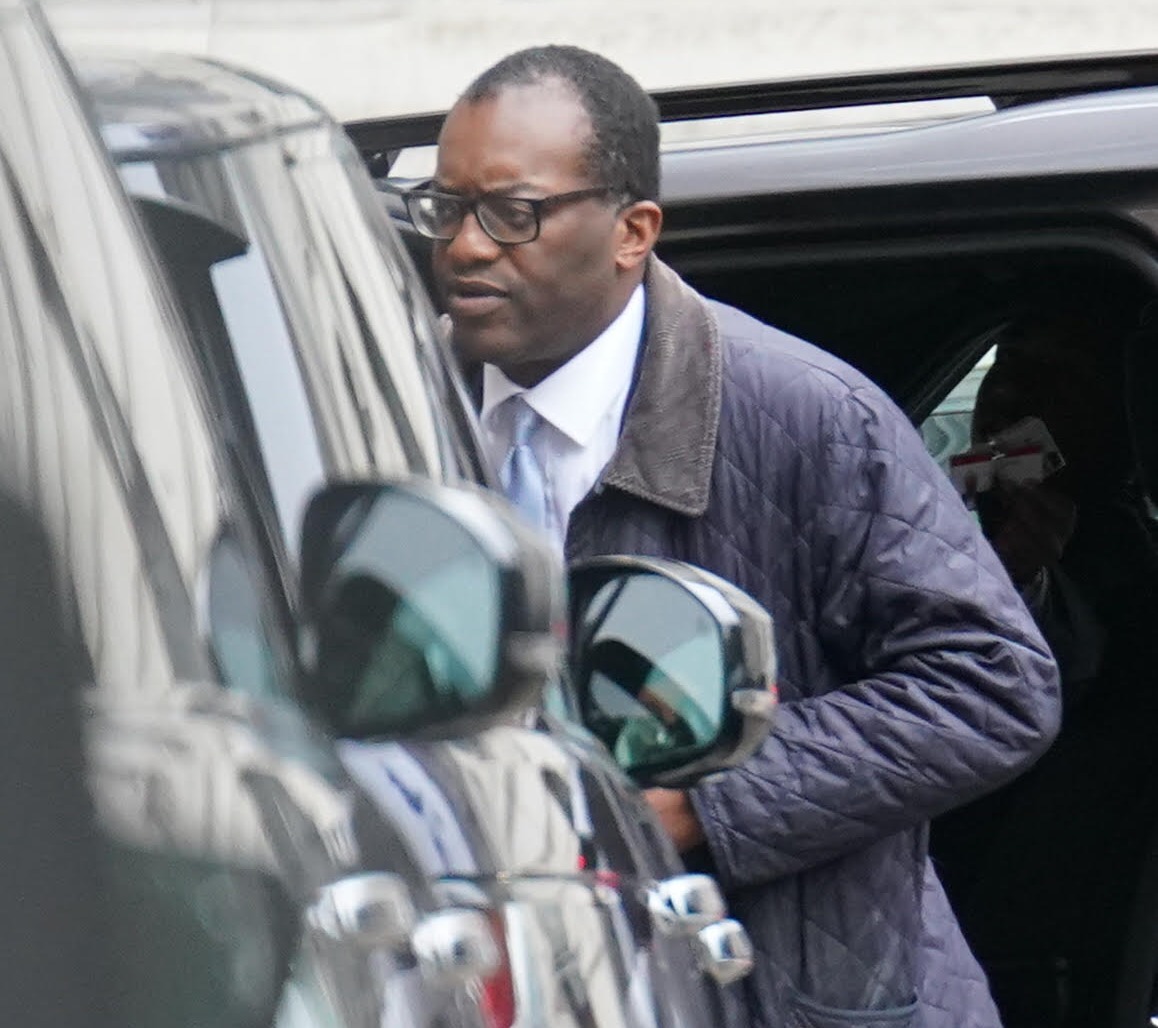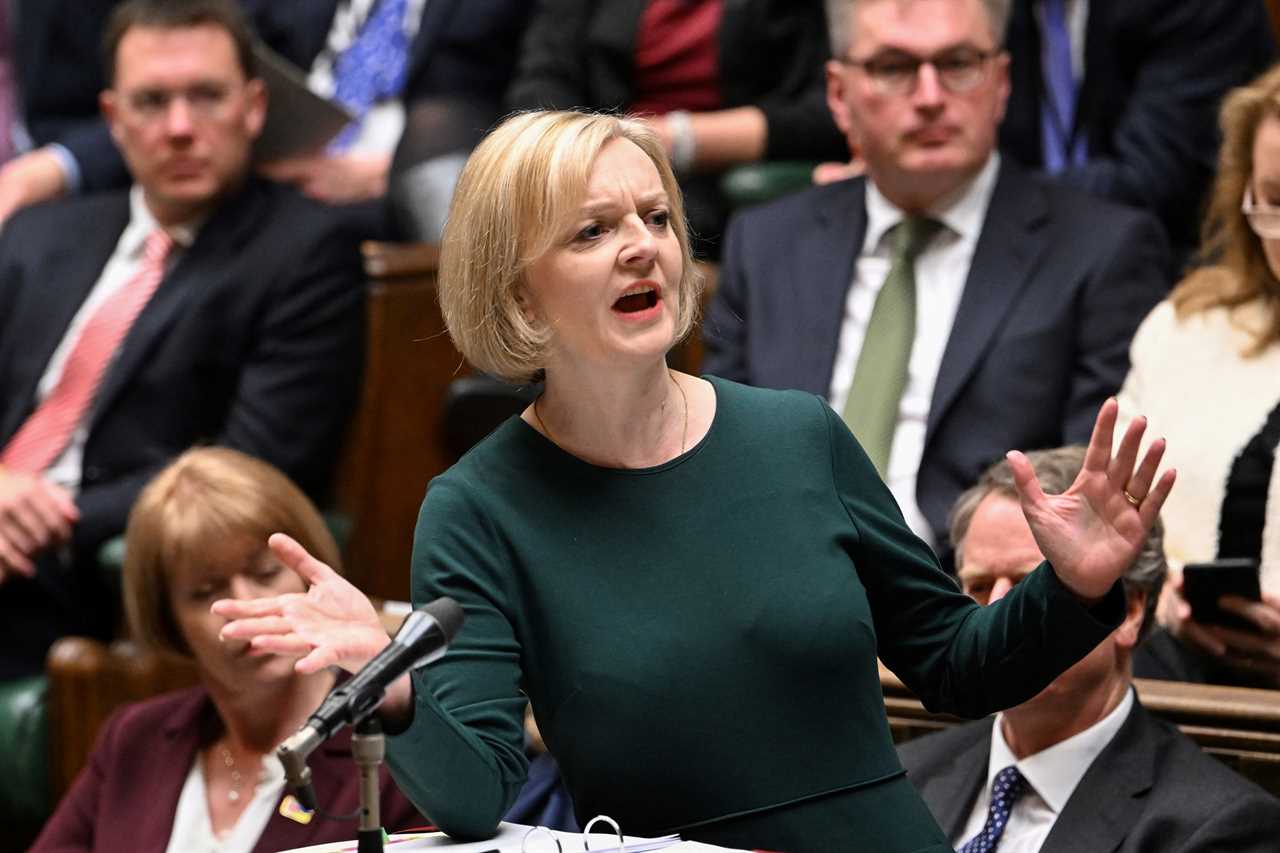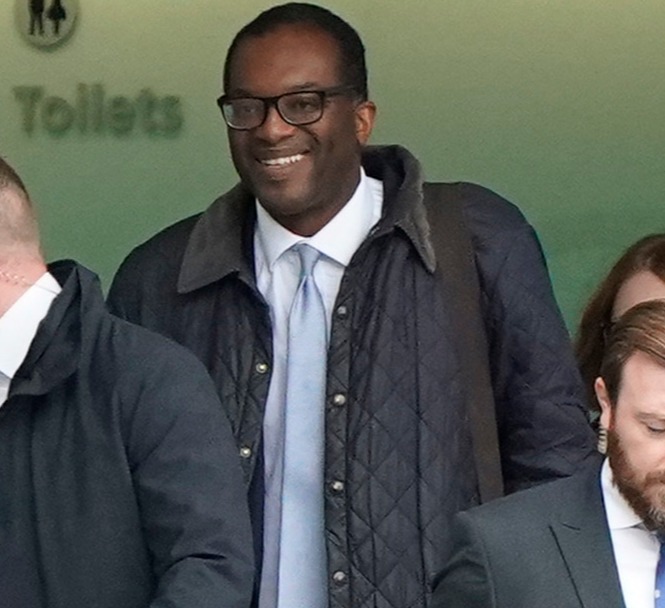KWASI Kwarteng has been SACKED by Liz Truss today following the market meltdown unleashed by his mini-Budget, it is understood.
The PM made the Chancellor the government’s fall guy for the chaos as she looks to reset her battered premiership just weeks into the job.

Kwasi Kwarteng arrives back in Downing St to learn his fate

Liz Truss could fire her Chancellor just weeks into the job
Mr Kwarteng this morning arrived back in London after cutting short his trip to Washington for crisis talks in Downing St with Ms Truss.
The PM will hold a solo press conference this afternoon where she is expected to u-turn on parts of her tax-cutting mini-Budget.
And in a bid to recover from a tumultuous first five weeks she has fired Mr Kwarteng as Chancellor, numerous reports claim.
Fewer than 24 hours ago Mr Kwarteng insisted in an ill-fated interview he was “absolutely going nowhere”.
Mr Kwarteng is the second shortest serving Chancellor in history, with his 38 days only being beaten by Iain Macleod’s 30 days in 1970.
Only this morning No10 sources insisted the PM and her Chancellor were in “lockstep” and there would be no more u-turns.
But the PM is likely to abandon plans to scrap a rise in Corporation Tax from 19 to 25 per cent next year.
Stopping the rise in Corporation Tax was a flagship pledge made by Ms Truss in the Conservative leadership election.
Rebellious Tory MPs have been urging Ms Truss to row back on his £45billion tax spree to calm the jitters in the money markets.
Mutinous MPs are emboldened after already forcing ministers to reverse plans to axe the top 45p rate of tax.
Mr Kwarteng yesterday admitted his “Growth Plan”, delivered less than three weeks ago, had caused some “turbulence”.
The £45billion of unfunded tax cuts included a 1p income tax,
He was due to deliver a statement on Halloween to reassure nervous markets that Britain would able to pay off its debts.
MARKETS RALLY
Markets rallied as Mr Kwarteng was sacked.
The FTSE 100 of leading shares was up around 1% on Friday.
The pound is trading over $1.12 against the dollar at the time of writing.
After the mini-Budget last month sterling fell to $1.03, its lowest level against the dollar since decimalisation in 1971.
It had jumped to over $1.13 on Thursday after it was revealed that Mr Kwarteng was for the chop.
The Bank of England was forced to take action after the pound plunged and markets went into turmoil over the Chancellor’s unfunded tax cuts.
It started buying up government bonds, also known as gilts, to stabilise financial markets.
The price of the 30-year gilt has gone up, pushing down the yield to 4.35%. Previously it was 5%.
People pay attention to the yields – the amount of interest on the bonds which is described in % terms – because this shows investors’ confidence in them.
The higher the yield, the cheaper the price, and the riskier investors think they are.
The bond buying is set to end today with the Bank of England earlier insisting that it would not be extended.
Trade Minister Greg Hands this morning insisted there were “no plans” to change the mini-Budget and tried to play down the uncertainty.
He told LBC: “The Prime Minister and the Chancellor are absolutely determined to stick to the growth plan, to stick to the changes they outlined.
“There are absolutely no plans to change anything, except for the fact that there is going to be a medium-term fiscal plan.”

Kwasi Kwarteng arrives back in London






